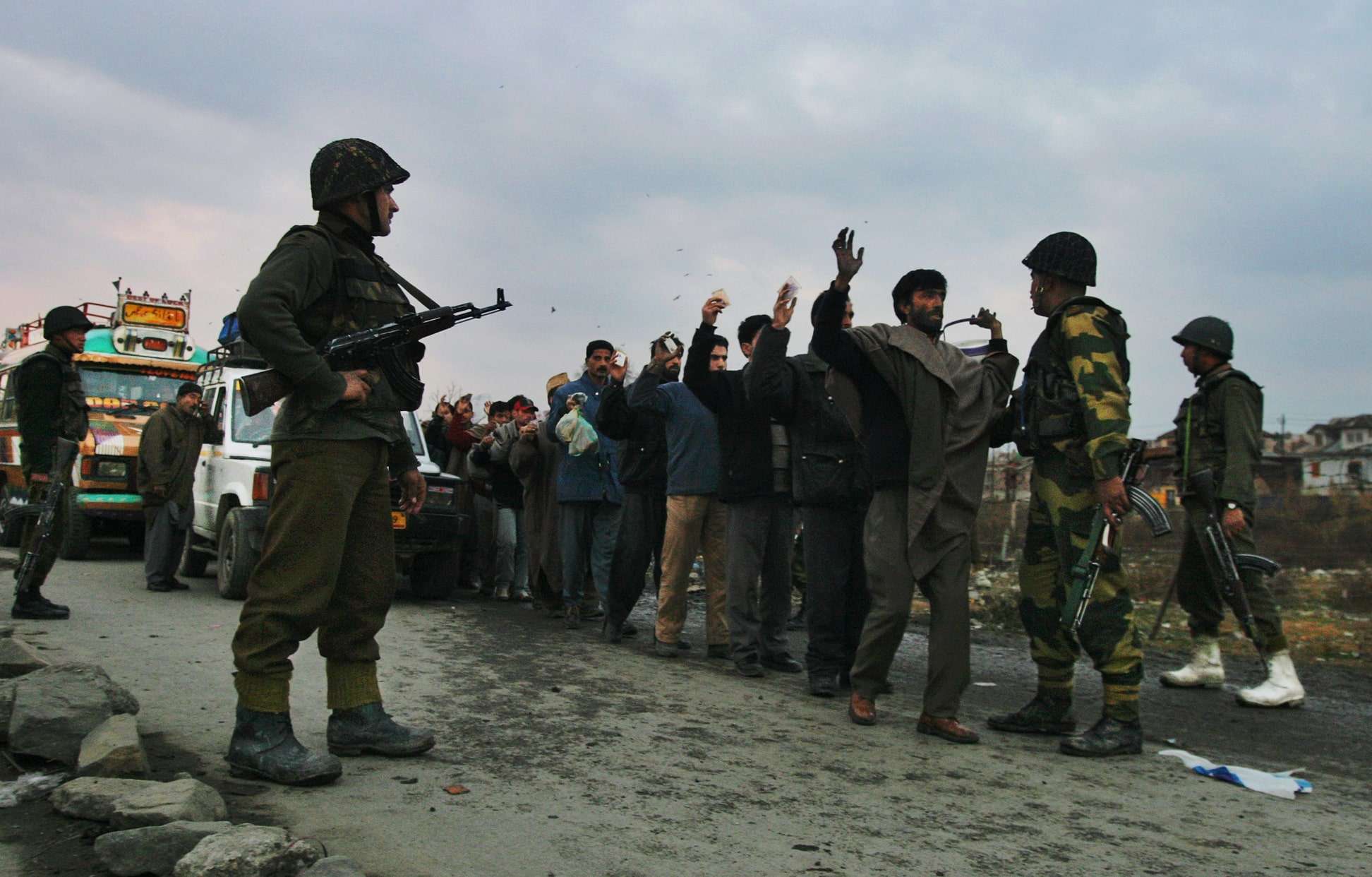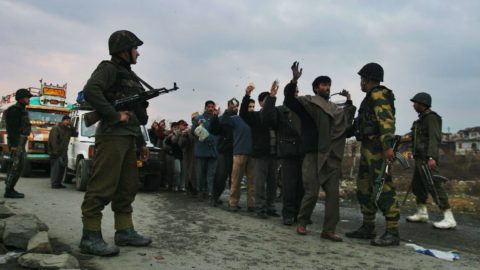A Mini-Report on India's Response to the November 10 Attack Justice for All — When…
Gerrymandering in Kashmir: Undermining Democracy and the Call for International Intervention
By: Tazeen Hassan, Justice For All Canada, Campaign Manager
Gerrymandering refers to the deliberate manipulation of electoral district boundaries to favor one party or group over another, undermining the core principles of democracy. This practice can dilute the political power of certain communities, skew electoral outcomes, and perpetuate inequality. In the case of Jammu and Kashmir, recent electoral manipulations by the Indian government are a textbook example of gerrymandering, designed to erode the political influence of the region’s Muslim majority.
Following the revocation of Article 370 in August 2019, which stripped Jammu and Kashmir of its special autonomous status, India has undertaken significant changes to the region’s electoral landscape. The changes are not subtle and demonstrate a clear attempt to reshape the political future of the disputed territory to the detriment of its Muslim majority population.
According to the 2011 census, Muslims in in Jammu and Kashmir comprise 68.3% of the entire population, while Hindus make up 28.2%. However, the 2022 Delimitation Commission allocated 47 assembly seats to the Muslim-majority Kashmir Valley, which has 56.15% of the state’s population, and gave 43 seats to the Hindu-majority Jammu region, which has 43.85% of the population.
According to veteran Kashmiri analyst, in this 90-member assembly, the 28% Hindu population will now hold 34.44% of the seats.
Although Hindus are in the majority in the Jammu division, the Muslim population makes up 34.21%. Through unfair delimitation, the Muslim-majority constituencies in Jammu have been reduced from 12 to 9. As a result, Muslim representation in Jammu will decrease from 32.43% to 20.93%. In the previous assembly, out of the 37 total seats in Jammu, 12 were Muslim-majority constituencies.
The Mechanisms of Gerrymandering in Kashmir
- Redrawing Electoral Boundaries: The Indian government has altered the boundaries of electoral districts in Jammu and Kashmir. This redistricting has created a skewed balance by combining areas with Hindu-majority populations into single constituencies, effectively increasing their representation.
- Increasing Seats in Hindu-Majority Areas: To further undermine the political voice of Muslims in the region, the Indian government has increased the number of electoral seats in districts with a significant Hindu population. These changes ensure that Hindu-majority areas are overrepresented in the legislative assembly. New electoral constituencies are introduced in Hindu majority areas while 3 times more populous Muslim majority areas have been merged with other districts.
- Reducing Representation in Muslim-Majority Areas: Simultaneously, Muslim-majority areas have seen a reduction in representation. This artificial reduction directly impacts the ability of the Muslim population to influence policy and governance, marginalizing their role in the democratic process.
- Appointment of Non-Elected Members: Perhaps the most blatant manipulation is the new provision that allows the governor, who is directly appointed by the central Indian government, to nominate five non-elected members to the assembly. This further tilts the balance of power away from the electorate and places it in the hands of a government with vested interests in diminishing the region’s Muslim majority.
According to a veteran political analyst, the intent behind these measures is clear: the Indian government is attempting to convert the Muslim majority in Jammu and Kashmir into a minority in the Assembly. By diluting Muslim representation through gerrymandering, India seeks to legitimize its control over the region and suppress voices of dissent.
The Disadvantages of Gerrymandering
Gerrymandering has far-reaching consequences for democracy, and its implementation in Kashmir is no exception. Some of the critical disadvantages include:
- Erosion of Political Fairness: By redrawing district boundaries to favor a particular group, gerrymandering undermines the fairness of elections. In the case of Kashmir, this means that the electoral process no longer reflects the will of the majority, but rather the strategic interests of the Indian government.
- Marginalization of Minority Voices: Gerrymandering systematically reduces the representation of marginalized communities, in this case, the Muslim majority. This deprives them of their rightful influence in governance, further alienating them and deepening social and political divides.
- Undermining Democratic Institutions: Manipulating electoral boundaries weakens trust in democratic institutions. When elections are rigged to ensure a predetermined outcome, the credibility of democracy itself is at stake. For Kashmir, a region already fraught with political tension, this can lead to greater unrest and instability.
- Perpetuation of Inequality: Gerrymandering institutionalizes inequality by giving disproportionate power to one group over another. In Kashmir, the Hindu minority’s political influence is artificially inflated, sidelining the Muslim majority and perpetuating an uneven playing field.
- Further Radicalization of Helpless Kashmiri Muslims: One of the most dangerous consequences of gerrymandering in Kashmir is the potential for further radicalization. As the political influence of Kashmiri Muslims is systematically diminished, their sense of political disenfranchisement deepens. Feeling powerless in the face of systemic injustices, some may turn to more extreme forms of resistance. When the political process is rendered inaccessible and unresponsive, disillusionment and anger can fuel radicalization, creating an environment ripe for conflict. This cycle of suppression and extremism only escalates tensions, making peaceful resolution even more elusive.
The Call for International Intervention
The gerrymandering in Jammu and Kashmir represents a grave threat to democracy, human rights, and regional stability. As one of the world’s foremost advocates of democracy, Canada must take a stand against these anti-democratic practices. The Canadian government has long championed human rights and democratic values, and it is essential for Canada to act now.
Canada should publicly condemn the exploitation of electoral process through gerrymandering in Jammu and Kashmir and call for free and fair elections in the region. Furthermore, as a member of international organizations like the United Nations, Canada can urge the global community to hold the Indian government accountable for its actions, which contravene democratic principles and the right to self-determination.
In conclusion, election-manipulation in Kashmir is not merely a local issue but a direct assault on democratic governance and human rights. The international community, including Canada, must take a firm stand in defense of the people of Jammu and Kashmir, ensuring that their voices are heard and their rights respected. Without intervention, the gerrymandering in Kashmir risks becoming a dangerous precedent, signaling that democratic manipulation can go unchecked in regions of political dispute. The world cannot afford to be silent.




